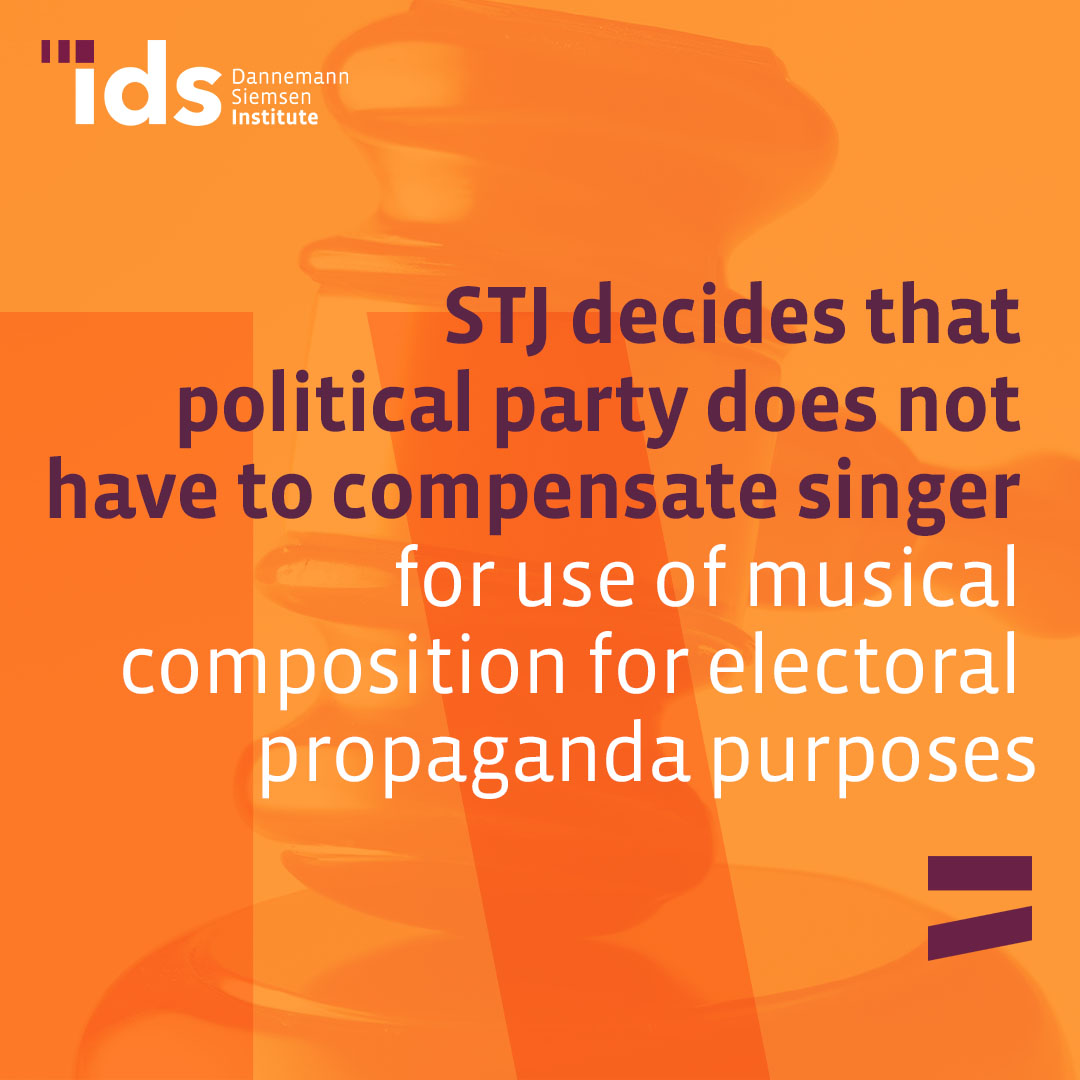03 de junho de 2024
Share
STJ decides that political party does not have to compensate singer for use of musical composition for electoral propaganda purposes
In a decision handed down on May 14, the 3rd Panel of the Superior Court of Justice (STJ) unanimously held that political parties and candidates are not jointly and severally liable for violations of copyright and image rights committed by their supporters during an election campaign, when they were unaware of such violations. The case arose after the singer sued a candidate and a political party for the unauthorized use of a song she wrote and performed during the 2018 presidential election campaign. The excerpt of the song was used by supporters of the then presidential candidate during the campaign, without the knowledge of the candidate and the party.
At first instance, in 2021, the Court of Justice of the Federal District and Territories (TJDFT) ordered the political party and the presidential candidate to pay compensation for moral damages of R$100,000, for the improper use of the song. On appeal, the court upheld the view that “the improper use of a musical work constitutes a violation of the author’s personality rights, causing damage to his image rights, both as author and performer, especially when the contemporary news at the time of the elections presented negative reports against the political party or candidate, enabling an involuntary and unwanted link between the plaintiff and the political messages disseminated, as well as hurting her image in the eyes of the supporters of the other candidates”.
In the STJ, the analysis focused on the protection of the author’s rights and the regularity of electoral propaganda in the face of the expansion of tools for producing and sharing content on the internet, highlighting the search for a balance between the collective interest in the dissemination and progress of knowledge and the private interest in protecting the creative effort and investment made by the author. Here, it was also noted that the virtual environment “makes it difficult to control the use of works protected by copyright, given the dynamism of social interaction mechanisms, and undoubtedly affects the electoral process”.
It also dealt with the rule of party responsibility for propaganda during the electoral period, set out in art. 241 of the Electoral Code, excepted in this case because it cannot be applied unrestrictedly to the field of civil liability. In the words of the rapporteur, Justice Marco Aurélio Bellizze, “the electoral process is responsible for creating a state of collective excitement, stimulating a social debate covered in antagonisms, since the choice made at the polls implies a prior discussion about the merits and demerits of a particular candidate, party, program and proposals. Therefore, imposing on parties and candidates the responsibility for controlling the political debate among voters and the way in which electoral proselytizing is carried out by their supporters and adherents is unreasonable, especially in the virtual environment.”
Finally, the court pointed out that even if the improper use of an image and musical work in the political-electoral campaign was recognized, through the dissemination of a video with copyright violations on the social networks of important supporters of the political party, supporters of the electoral campaign, there was, however, no participation or knowledge of the party or the candidate, so that it is not possible to condemn them to pay compensation for material and moral damages for the violation of copyright.
The decision can be accessed via the link: REsp nº 2093520/DF
Note: For quick release, this English version is provided by automated translation without human review.
